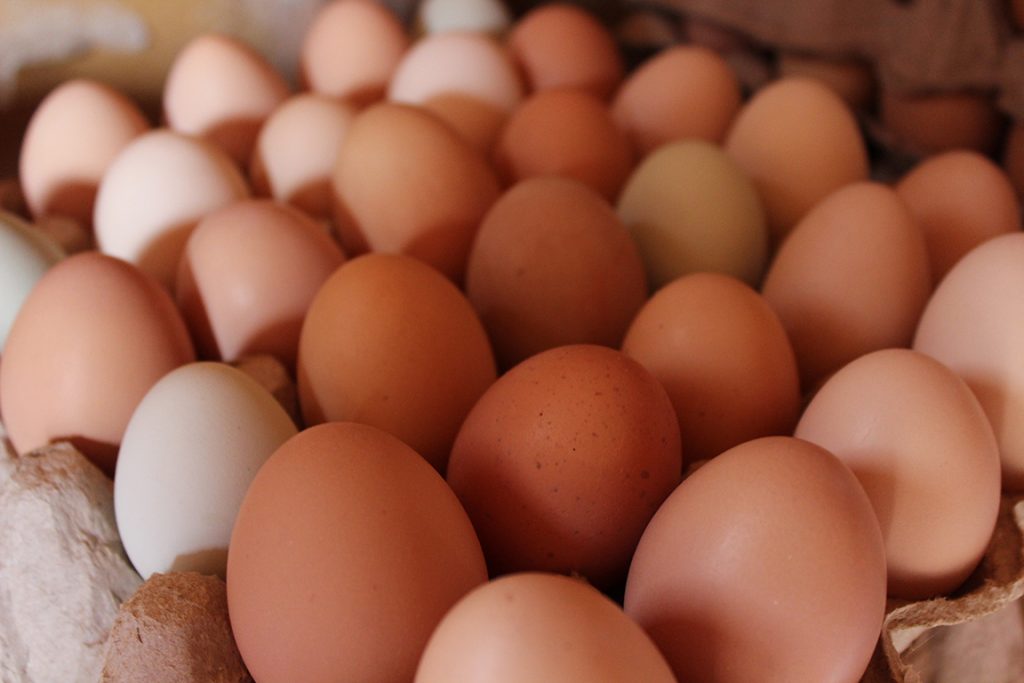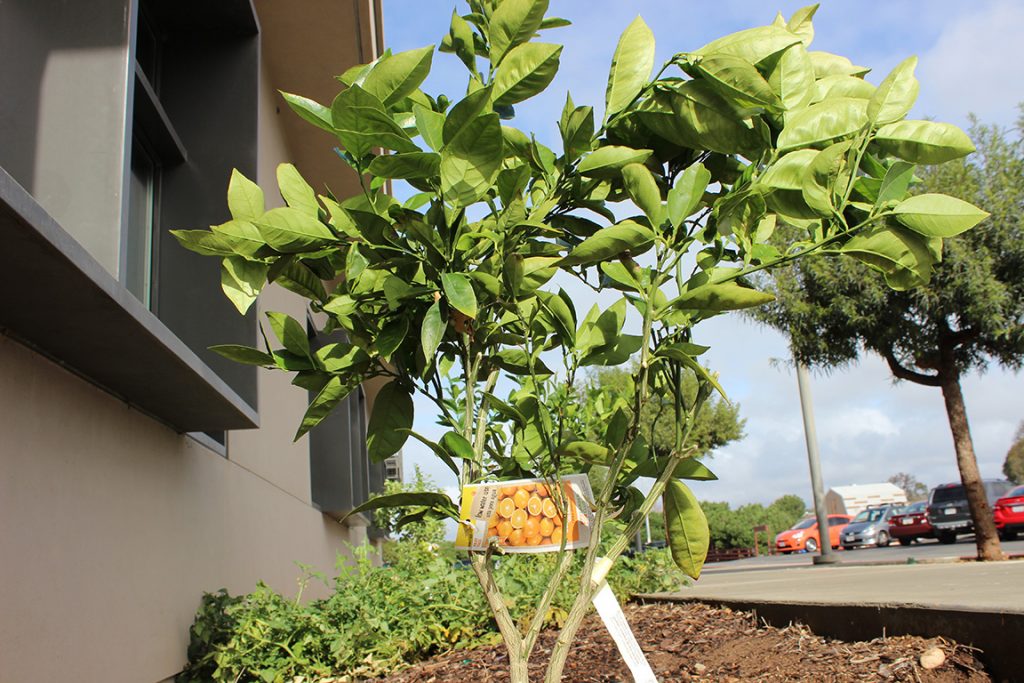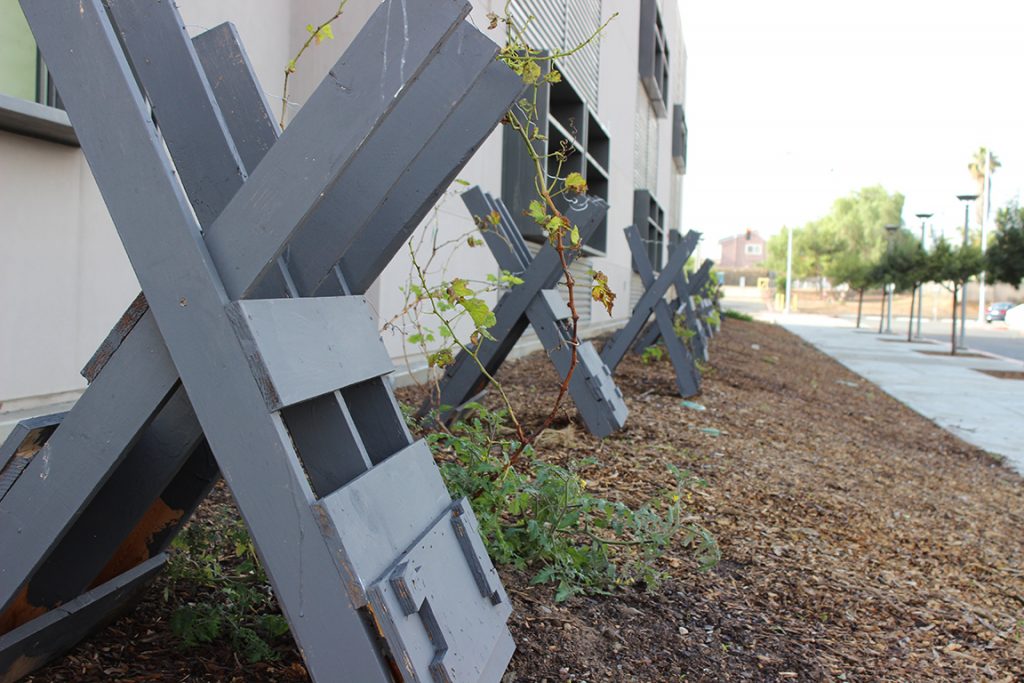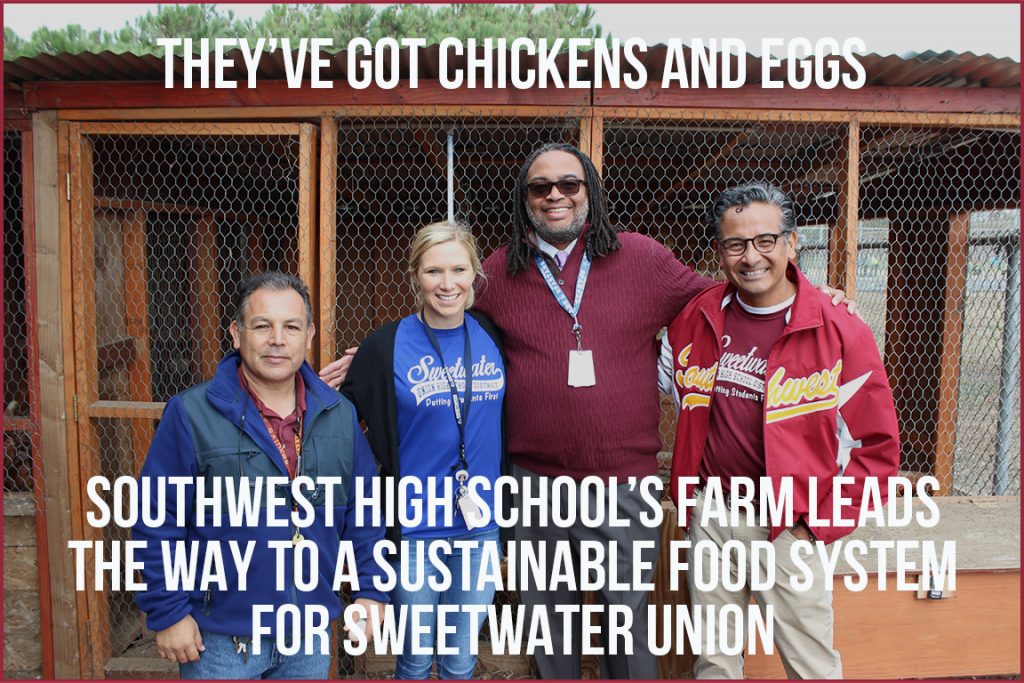
Southwest High School, located in San Diego’s South Bay, is in the midst of a pioneering initiative that may well prove to be a model for schools across the county, state and the nation. The school, in cooperation with the district’s Nutrition Services department and a number of grants, is in the midst of developing its own food system, with the first step coming in the form of a sustainable farm which can grow produce to sell and serve at all schools in the Sweetwater Union High School District.
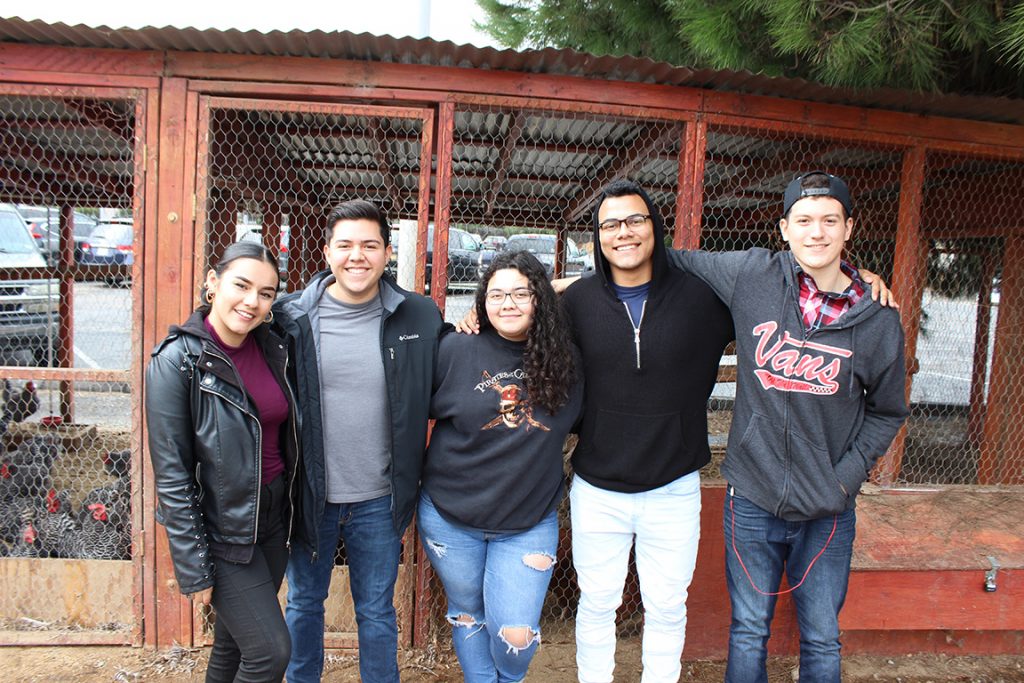
Southwest High School students are responsible for caring for the chickens. During winter break, they self-organized into teams to take shifts maintaining the farm even though classes were out for three weeks. This is a small group of the many students caring for the farm.
The Vision
That vision was conceived by the district’s Director of Nutrition Services, Eric Span, a former chef who leads the department’s visionary efforts. Span, who grew up in Chicago, believes that food can be a healing agent, a vital part of communities, and a forum for those communities to enter into conversation about health and nutrition. He realized that some under-utilized land at a school was filled with possibility to do something special at Southwest High School.
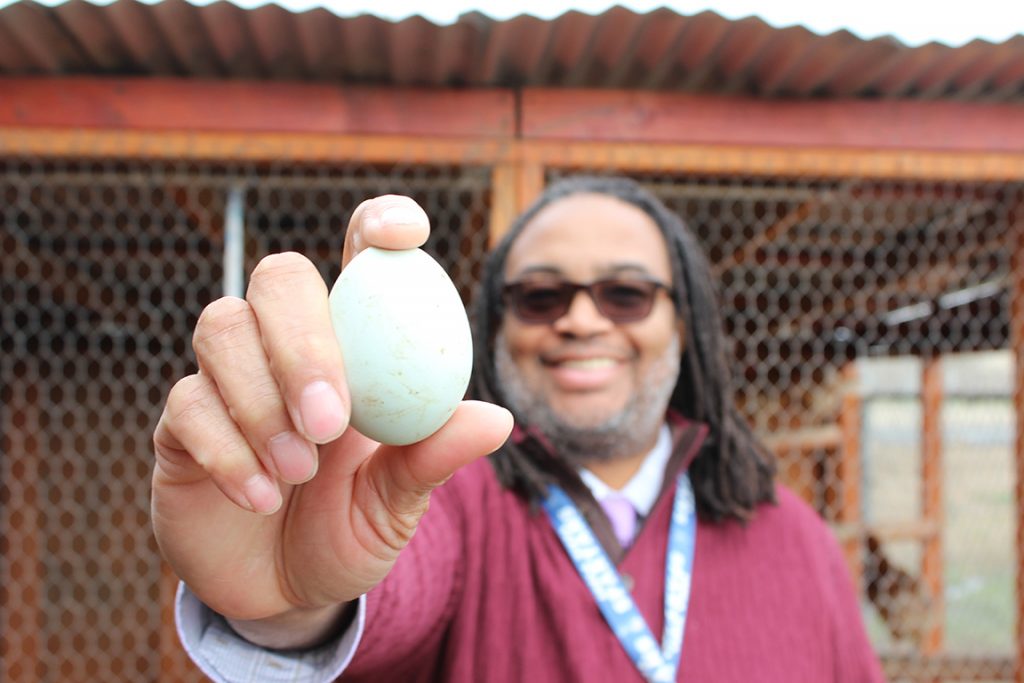
Eric Span, Nutrition Services Director for Sweetwater Union HSD, had a vision for a school-based urban farm to supply schools with fresh, locally produced foods.
“I saw this as a great opportunity to do something different, and the entrepreneurial side of me saw that we could grow our own food and serve it in our cafeterias.
An Enthusiastic Ally
He found an ally in Dr. Hector Arias, head of the engineering academy at Southwest and the creator of the school’s eco-engineering course. Having established himself as an ace engineering student during his undergraduate work in Mexico, Dr. Arias then began graduate level work in engineering as a Fulbright scholar, studying at Louisiana State University, where he earned his PhD.
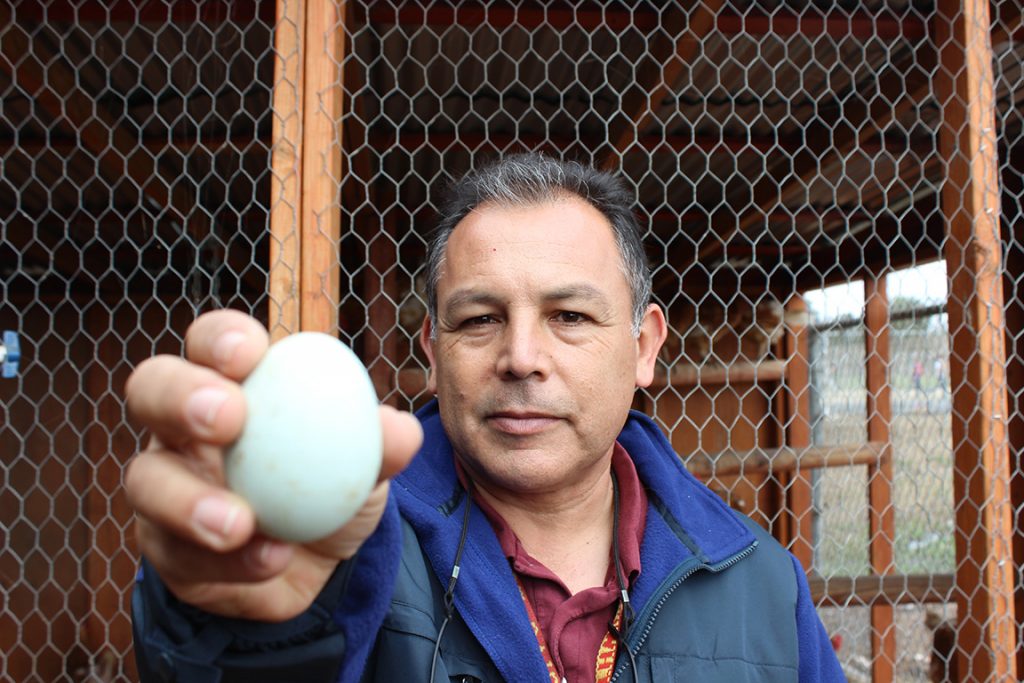
Dr. Hector Arias and his Eco-Engineering students have designed, built and maintained a thriving (and growing) chicken farm at the school. That’s just the first step.
After several years of teaching and research, including a period at San Diego State University, Dr. Arias accepted an invitation from Sweetwater Union to help bolster the engineering department at Southwest High School. The program is booming, with students winning national awards in robotics, as well as gaining valuable first hand insight from working engineers and architects in San Diego.
Span and Arias quickly gained the support and encouragement of Southwest’s Principal, Lee Romero, and the group set out to execute the idea for a farm.
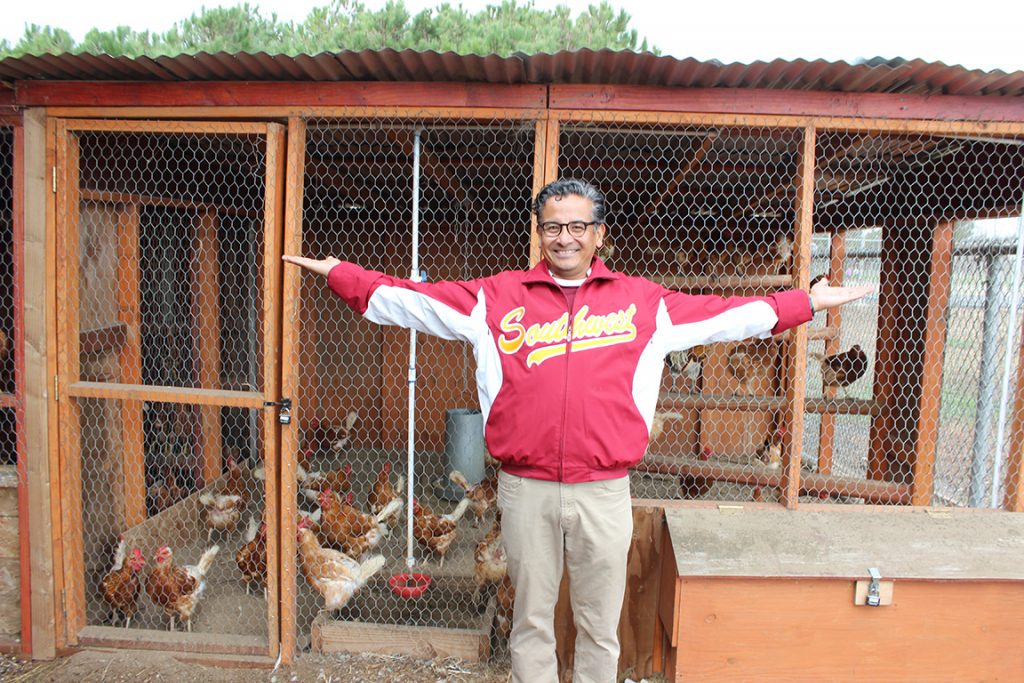
Southwest High School Principal Lee Romero in front of just one of the thriving chicken coops at the school.
The school began applying for and being awarded a series of grants that have helped to fund and facilitate the steps toward the full scale farm.
Next Step: Build
With the grant money in hand, the classes were able to construct chicken coops, raised growing boxes, and a supply shed for storage of tools, seed, feed and other farming resources; the team also added the care and maintenance of those assets into the eco-engineering curriculum.
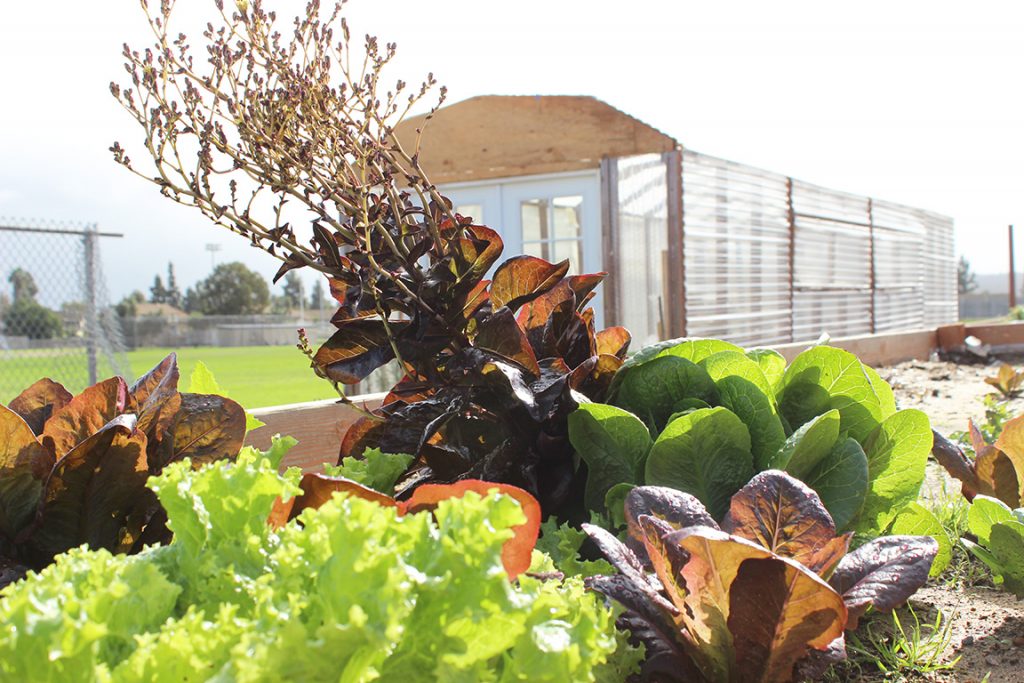
Butter lettuce and mixed green lettuce growing in one of several raised planter boxes at Southwest, with a greenhouse in the background.
The chicken coops house close to 400 birds, which produce between 10-12 dozen eggs every day. The Nutrition Services department buys all of the eggs that it can for use in offerings such as protein boxes similar to those found at certain global coffee chains, as well as in cooking for the district’s meals.
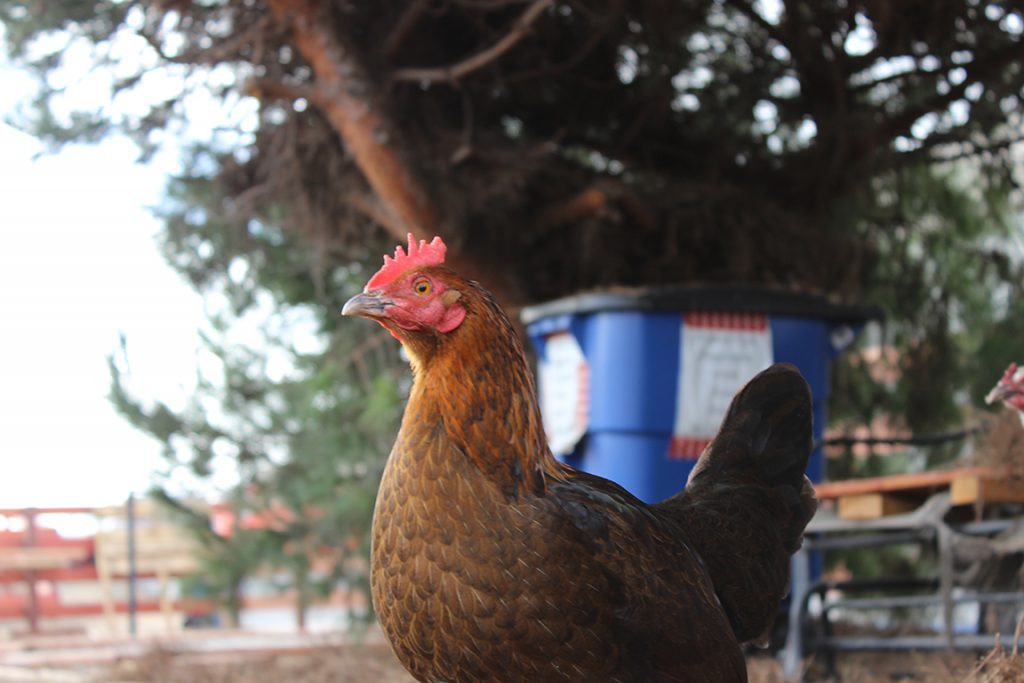
While most chickens stay in their coops, a few make it outside for a walk around the school grounds. Free range, indeed.
Cyndi Roncoroni, an English teacher and advisor of the eco-engineering farm says that her students are learning many lessons, from the practicality of farming (such as composting, or using egg shells and pine cones to make pesticides), to valuable lessons in service and leadership. During the recent winter break, students designed a workflow calendar to ensure that chickens were fed and cared for despite classes being on break.
Ms. Roncoroni, as part of the program’s Zero Waste Initiative, helps guide the students so that nothing goes into the trash. Leftover food from the school’s cafeteria goes to feed the chickens, and other waste from the farm helps to fertilize crops.
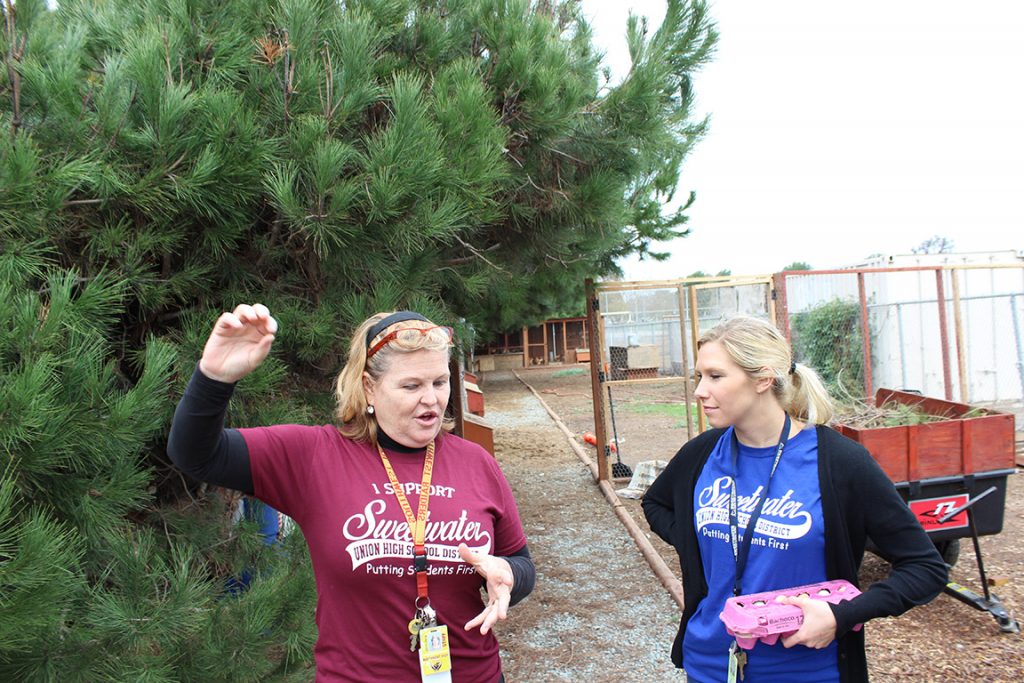
Mrs. Roncoroni, left, explains the students’ role in caring for the farm to Devon Walker, a Registered Dietitian and Area Supervisor for Nutrition Services.
The work at Southwest is designed to serve as a model for other farming programs across the district, and Span envisions possibilities on every campus. “We may have some that are specialized, growing spices, or installing fruit orchards, whereas other schools may grow leafy vegetables, and so on. The goal is to have a food system that students can look at and know where their food comes from every day.”
“Being located in the South Bay, we are innovative and inventive and have a commitment from the county with our awarded grants,” said Southwest Principal Lee Romero. “We believe in giving these students the opportunity of becoming the next generation of great engineers, and we wouldn’t be Southwest High school today without incredible teachers, like Dr. Arias, Ms. Roncoroni, and Eric Span for our eco-engineering farm” said Mr. Romero.
Continues Span, “As a chef, it provides creativity that students will find interesting and appetizing. Students are asking and wanting something different.”
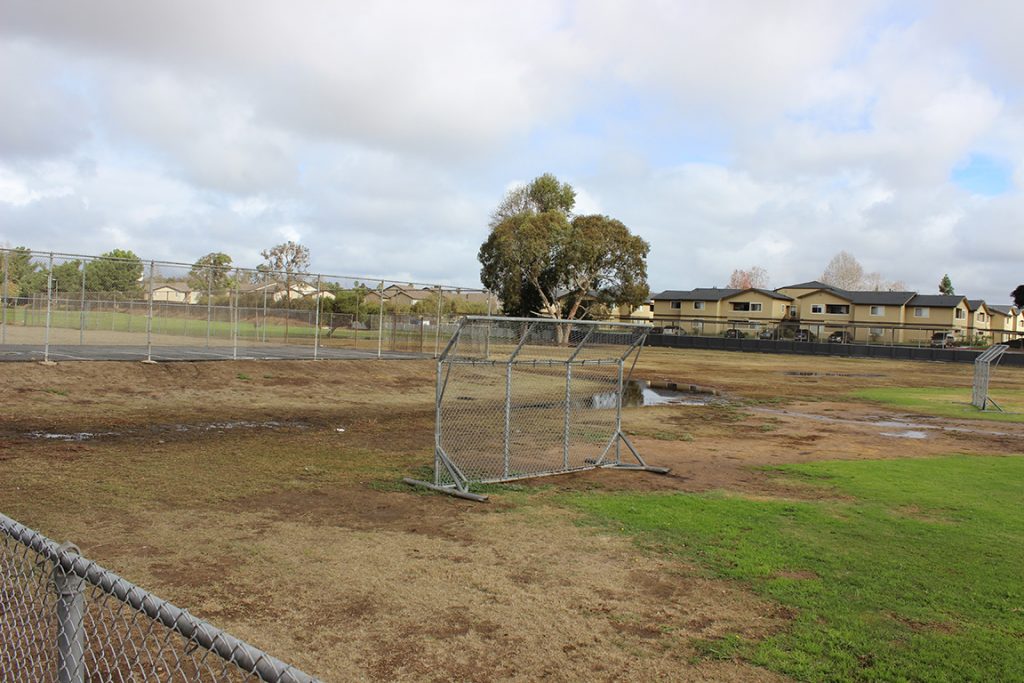
What appears to be a field of dying grass is the space being prepped for a larger scale farm at the school. The grass is being left to die out so that it is easier, and less expensive, to plow for the farm.
The Nutrition Services department is also working to introduce students to new menu items that fit into their cultural taste buds, such as a shrimp taco or noodle bowls with homemade broth and fresh vegetables. Span and his team are also working with students to explore menu options with the humane society, as requests for a greater variety of vegetarian and vegan options have come from students.

